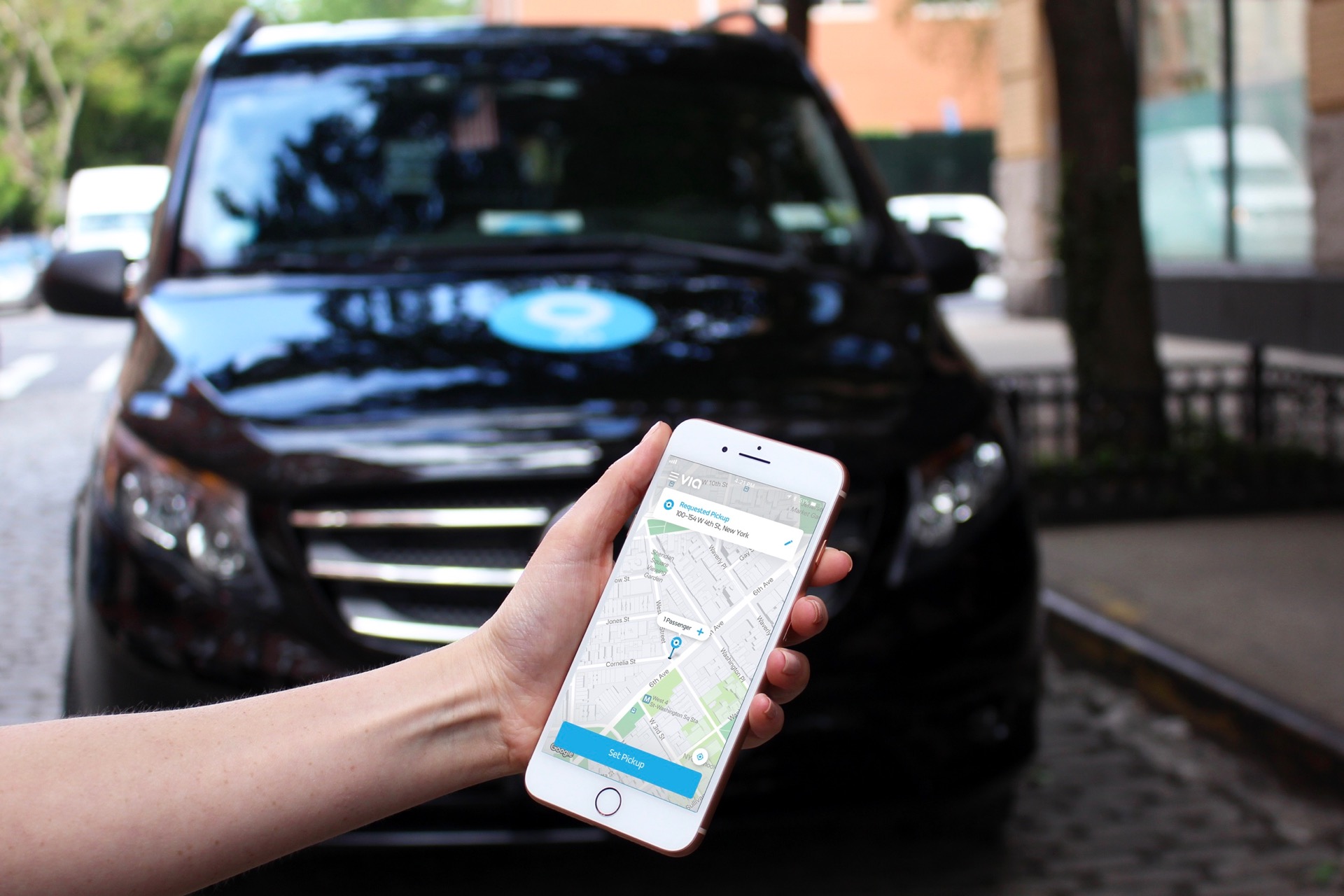

For Earth Day, ride-hailing company Via is asking customers to share their rides. The service will disable the private-ride option in its app for Earth Day, April 22, in an effort to reduce carbon emissions and traffic congestion by putting more passengers into each vehicle.
Via claims that 95 percent of its rides already place multiple passengers in one vehicle. The company has been more aggressive in promoting shared rides than larger rivals Uber and Lyft, operating fleets of vans alongside passenger cars and using a special algorithm to group multiple passengers in one vehicle. If one person switches a single-occupancy vehicle to a shared one for their daily round trip commute, it can reduce their carbon footprint by the same amount as planting 17 trees, Via claims.
In New York City, which enacted a one-year cap on ride-hailing vehicle registrations in part to reduce traffic congestion, Via claims that 85 percent of customers share a ride with at least one other person during peak hours. The company claims New Yorkers have saved 22 million pounds of carbon-dioxide emissions and 29 million vehicle miles by sharing rides. In 2018, shared rides in New York City also saved $90 million, according to Via.
Shared rides can still increase traffic congestion, studies have shown, because they often compete with public transit. Via has undertaken programs to augment existing public transit systems, working with transportation agencies in multiple cities. It recently teamed up with Mercedes-Benz and Transport for London to launch an on-demand bus pilot in the British capital. Prior to that, its vans replaced buses in Arlington, Texas, under an agreement with the city government. But in cities where this kind of cooperation doesn’t exist, the convenience of services like Via could continue to draw riders away from public transit.
Companies like Via may also have trouble to get people to share rides. The demise of Ford’s Chariot service, which used vans to transport multiple passengers, showed that when it comes to app-based transportation, many people prefer to go it alone. Via’s shared-ride service directs passengers to “virtual bus stops” for pick-up. Via claims this is more efficient, allowing it to carry more passengers with fewer vehicles. But it’s still less convenient than having a car pull up at your doorstep and take you directly to your destination, which may dissuade some potential customers.
Ride-hailing customers may have to get used to a little inconvenience, however. In addition to the concerns of how a flood of single-occupancy ride-hailing vehicles will increase traffic and emissions, shared services also make sense for companies. Passengers can be directed to pick-up locations that are convenient for drivers and companies get more revenue out of each vehicle. However, that can also be said of an existing transportation mode: the bus.